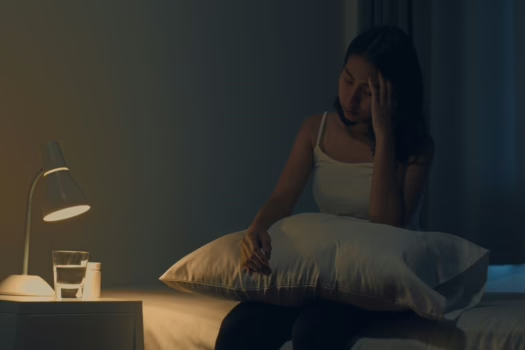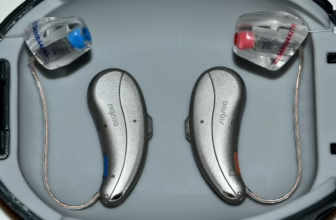Sleep isn’t just a nice-to-have when you’re recovering from a mental health condition. It’s a biological necessity. Yet, for many people in recovery, sleep becomes the most elusive part of healing.
Insomnia drains far more than just your energy. Therapy, relationships, staying regulated, and even remembering to take medication become harder. If you’re recovering from a mental health condition and wide awake at 3 AM, you’re not alone.
Let’s break down why insomnia often walks hand in hand with mental health issues and what you can do to manage it realistically.
Why Insomnia Happens During Mental Health Recovery
According to the National Alliance on Mental Illness (NAMI), nearly 50% of people with mental health struggles experience chronic sleep disturbances. Depression and PTSD are similarly linked with persistent insomnia.
The relationship is not one-way either. Poor sleep can intensify mental health symptoms, creating a cycle that can be hard to break.
During recovery, your brain is already doing a lot: unlearning patterns, processing trauma, regulating mood swings. Add in hyperarousal from anxiety, intrusive thoughts from depression, or nightmares from PTSD, and it becomes clear why sleep is often one of the first things to go.
Neurologically, mental health disorders disrupt the balance of neurotransmitters like serotonin and dopamine, which help with sleep regulation. When these chemicals are not in sync, your natural sleep-wake cycle is affected, making it harder to fall and stay asleep.
Medication side effects, withdrawal from substances, or even the stress of rebuilding your life can also mess with your sleep cycle.
Things That Actually Help
While everyone’s experience is different, there are strategies backed by research and anecdotal evidence that can help you get better sleep during mental health recovery.
Here are a few approaches you can try:
Cognitive Behavioral Therapy for Insomnia (CBT-I)
CBT-I is considered the most effective technique for treating chronic insomnia. It focuses on changing thought patterns and behaviors around sleep. A study published in 2018 found that people who underwent CBT-I showed significant improvement in sleep without needing medication for it.
CBT-I works by helping you:
- Understand how sleep works
- Identify and reframe negative thought patterns
- Limit time in bed to only when you’re sleepy
- Create a better sleep routine
- Address racing thoughts through journaling
Build a Calm Sleep Environment
Having a sleep environment doesn’t mean that you need blackout curtains and a white noise machine. It means curating a space that feels emotionally safe. For some people, that’s a stuffed animal or a comfort object. For others, it’s keeping clutter to a minimum.
You can try:
- Low lighting
- Soothing scents, like lavender
- Background audio or music that isn’t too stimulating
These things can help signal to your body that it’s OK to rest and calm down.
Identify What Disrupts Your Sleep
Sleep diaries or journals are helpful for identifying patterns that might need to be reframed. Are you more likely to sleep poorly after therapy sessions? Do nightmares show up on days when you skip meals?
Use simple notes on your phone or a paper journal to track when you feel sleepy and when you don’t. Noting down the interruptions, dreams, and how rested you feel in the morning also helps.
Avoid Using Devices Before Sleep
Blue light isn’t the only issue with using your phone or laptop late at night. The emotional activation of social media or a news app can also keep your mind on high alert.
If you can, try replacing your phone usage with something fun and relaxing, like a fidget toy or drawing. Consider a low-stress activity that genuinely makes you feel relaxed, so you don’t have to go to bed with anxious or depressing thoughts.
Consider Natural Aids
While sleep supplements should never replace professional treatment, some people find relief with melatonin, magnesium, or herbal teas. Resources like Sleepibles can help you learn about more of these natural supplements and techniques for better sleep.
However, you need to be careful about the dosage and consistency of what you take. Always consult your doctor or psychiatrist before adding anything new, especially if you’re on medication.
Talk to Your Therapist
It’s easy to focus on the “bigger” stuff in therapy, like panic attacks or depressive episodes, and forget to mention your sleep routine. But poor sleep can make everything else harder to treat.
Bring it up. Trust your therapist to be a part of your recovery. There may be trauma work, medication changes, or behavior strategies that can help.
When to Seek Extra Help
If insomnia persists for more than three months and interferes with your daily life, it’s worth bringing it up with a healthcare provider. Chronic sleep deprivation can lead to worsened depression, increased risk of substance abuse, and even cognitive decline.
Sleep studies, medication adjustments, or even temporary use of prescribed sleep aids might be necessary in some cases. It’s totally normal to need medical support, especially when you’re on the path to recovery.
You just need rest that helps you keep going. Whether that’s two good nights a week or a nap that helps you feel a bit refreshed, it counts. And you’re allowed to count it.
Follow me down the rabbit hole!
I'm Alice and I live with a dizzying assortment of invisible disabilities, including ADHD and fibromyalgia. I write to raise awareness and end the stigma surrounding mental and chronic illnesses of all kinds.








